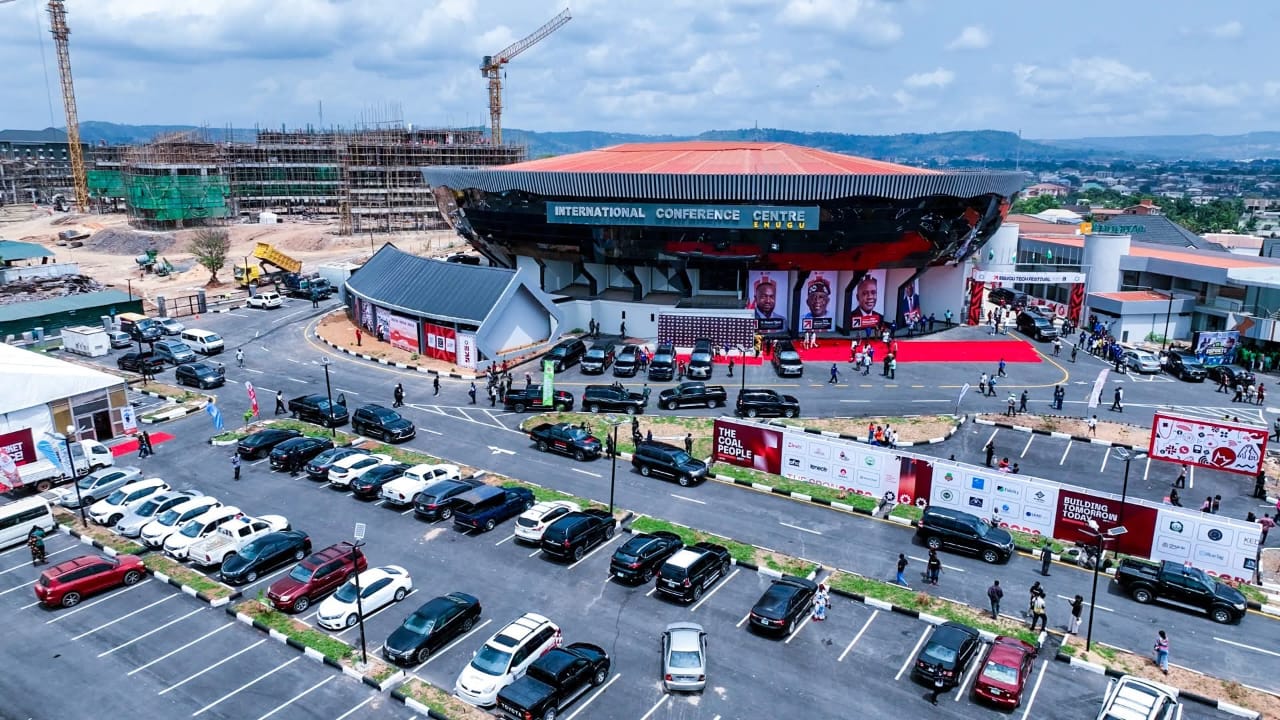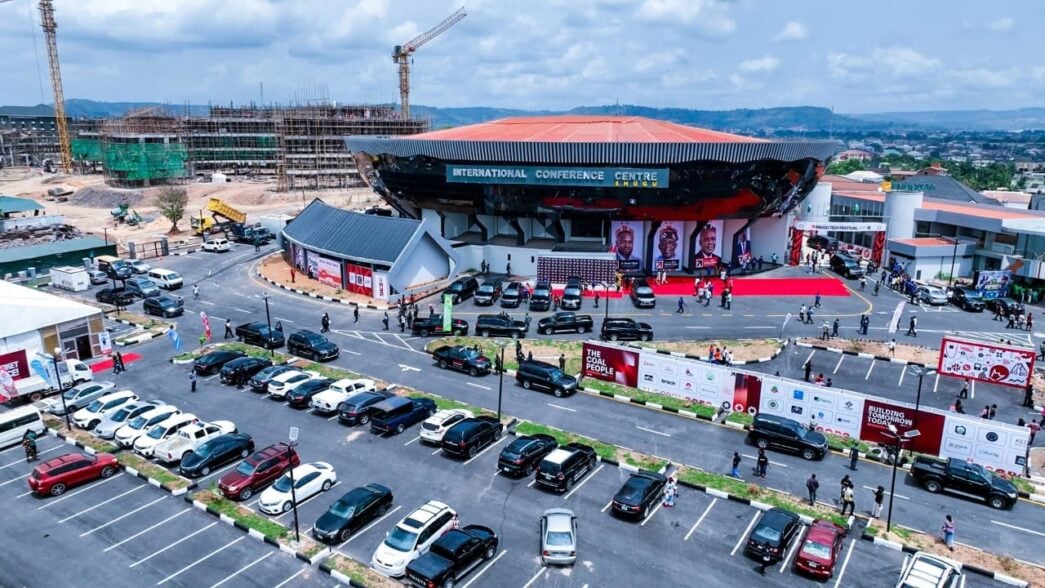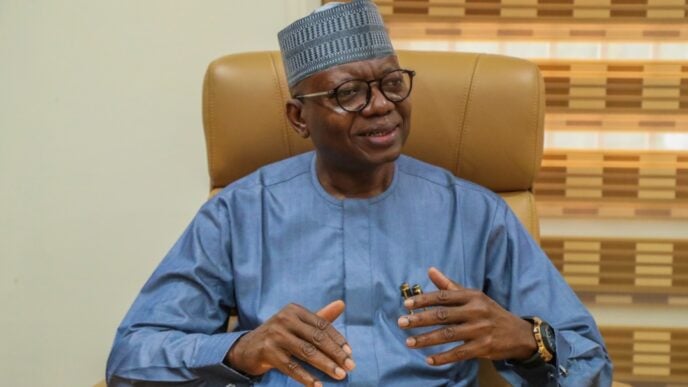BY JEFF UKACHUKWU
Once upon a time, Enugu’s tourism potential lay buried under the coal dust that once fuelled locomotives and lit up colonial dreams. But in today’s Enugu, there’s a new conversation about what it means to invite the world in, to give the hills, forests, waterfalls, and old mining relics a second life—not as relics of extraction, but as gateways for visitors seeking wonder, rest, and story. Enugu’s unique selling points, such as the Nsude Pyramid’s planned canopy walkway, the pine forests at Ngwo with their zip line, and the Awhum Waterfalls with their boardwalk, are set to make it a destination of choice for adventure seekers and nature lovers. You sense this shift the moment you arrive at Akanu Ibiam International Airport, the familiar scent of jet fuel is laced with the hum of new possibilities.
Gone were the long lines and faded signage; instead, a freshly painted façade welcomes you, each brushstroke a promise that Enugu is no longer simply a waypoint but a destination in its own right. Bright murals stretch along the arrival corridors, telling stories of coal miners’ resilience, the gentle curve of the Cross of Hope far above the city, and the promise of canopy walks through ancient forests. Even before you collect your bags, the air carries something different—an undercurrent of optimism that has become tangible here. This suggests someone finally cares how first impressions linger.
Outside, the runway’s recent refurbishment whispers of bigger jets, fuller cabins, and visitors who linger longer. It’s all part of a ₦13.8 billion tourism expenditure approved last May—a figure that, not so long ago, would have been earmarked for road repairs or public salaries, but which today underwrites a vision of Enugu as West Africa’s adventure and culture hub. Walk the tarmac at dusk and you’ll spot maintenance crews putting final touches on the three Embraer planes for Enugu Air, recently launched as part of Governor Peter Mbah’s administration’s integrated blueprint for a modern, multimodal transport ecosystem and the vision to make Enugu a major aviation hub. It is already connecting Enugu with Lagos and Abuja and will shortly expand its network of routes to other Nigerian cities and beyond.
Advertisement
The ambition is no secret. Governor Peter Mbah, barely two years into his tenure, made tourism a pillar of his promise to grow Enugu’s economy from around $4.4 billion to $30 billion in less than a decade. The plan is not just to draw fleeting tourists, but to anchor the state as Nigeria’s adventure, conference and heritage capital. The potential economic benefits of this plan are significant, with the state aiming to attract three to six million visitors a year, leading to increased hotel occupancy, job creation, and a boost to local businesses. For decades, those who came to Enugu did so primarily for family, work or politics. Now, the goal is for them to stay longer, spend more and tell stories that echo across borders.
It’s not a wishful blueprint either. ₦13.8 billion has been earmarked for the first phase of tourism development alone, with the private sector expected to match that commitment. This presents a significant opportunity for potential investors to contribute to Enugu’s tourism development. Nike Lake Resort, once the pride of Coal City but left to weather and neglect, is undergoing a ₦10 billion makeover courtesy of the Landmark Group. They plan to upgrade it as a lakeside destination that can host film festivals, weddings, conferences and weekend getaways. Around it, there’s the Coal City Film Festival, now in its fifth year, growing quietly into a meeting point for Nollywood creatives and international scouts. If all goes well, Enugu’s film scene might finally give the city a cultural signature that transcends nostalgia.
Of course, the government has revamped the long-abandoned iconic Hotel Presidential, built by Dr Michael Okpara Administration in the First Republic. At the same time, a stone’s throw away, it is building south-east’s first five-star hotel by the International Conference Centre. Not done, it is constructing the 300-bed Enugu International Hospital in the same vicinity. The hospital is prided to be the best in West Africa when delivered before the end of the year, drawing the best human resources from across the world to invert medical tourism flow back to Nigeria and Enugu State in particular.
Advertisement
Yet the big bets lie in the hills and forests that ring the city. Nsude Pyramid’s planned canopy walkway—600 metres of treetop suspense—will be the longest in Nigeria when done. The pine forests at Ngwo will feature their zipline, as well as cafes perched on raised decks. Awhum Waterfalls is getting a boardwalk, and the new “Cross of Hope” at Okpatu promises a giant illuminated cross visible for miles, something that pilgrims and Instagrammers alike will chase. It’s a blend of the spiritual, the scenic and the social media-ready—exactly the formula that has made eco-tourism and adventure parks so lucrative in Kenya, Rwanda and parts of Ghana.
But if Enugu is to join that league, it must crack the puzzle of access. Akanu Ibiam International Airport, despite periodic upgrades, has been a weak link for years. This time, the promise is different: a private concession is in the works to expand capacity. Matched with the already unveiled Enugu Air, it will open Enugu to various other routes that connect the city with business and leisure hubs around Africa and the world. No one is pretending this will be easy. Airlines don’t run on dreams alone; they run on efficient operations, competitive pricing and passenger trust. But for a state that wants three to six million visitors a year, the skies matter as much as the forests. And Mbah is ticking the boxes at a breathtaking speed.
Still, infrastructure is only half the story. The real test is whether visitors will feel safe, welcome and willing to return. Security in the South-East has been a sore spot. A new AI-powered command-and-control centre and statewide CCTV network are expensive but necessary symbols of seriousness. Just as vital is the softer side: how rangers, local guides and communities become co-owners of these assets. If the forest trails are left littered and cable cars break down without being fixed, the damage to reputation can undo years of marketing efforts overnight. Enugu’s new murals and roundabout sculptures might charm a first-time visitor, but it’s the sense that a city can care for its gifts that keeps tourists coming back.
Looking ahead, the numbers are both tempting and daunting. From a few hundred annual tourists a few years ago, the state aims to reach three million by 2025 and double that number within two more years. That’s not just about visitors taking selfies at Milliken Hill or sipping palm wine by Nike Lake. It means hotel beds filling up on weekdays, youth working as guides and event crews, farmers supplying pineapples for resort buffets, and entire communities earning a living from nature and heritage that once stood silent.
Advertisement
For now, the promise is visible, if not yet complete. Enugu has become a huge construction site – literally speaking. The blueprint for the Nsude canopy walk is pinned to the ministry’s wall. The conference centre and urban parks are slowly taking shape. Every roundabout that swaps dusty concrete for a polished monument says this is a place with its eyes on the future. But the road is long, and the test is relentless. It is one thing to launch big projects; it is another to sustain them when the political winds shift or funding dries up.
And yet, there’s a poetic justice in Enugu’s new story. The same hills that once swallowed men into tunnels now invite them back to walk above the trees. The coal that once fuelled engines now inspires stories that fuel curiosity and the knowledge economy. If Enugu can continue to stitch together good policies, genuine partnerships, safety, and a sense of care for the landscape and the people who call it home, its tourism renaissance might outlast the slogans. And maybe, in the soft dawn light over Milliken Hill or the roar of Awhum’s waterfalls, visitors will find that this corner of Nigeria is more than a stopover—it’s a destination and an experience that lingers.
Dr Jeff Ukachukwu, a public affairs analyst, writes from Enugu via jeffukagmail.com
Advertisement
Views expressed by contributors are strictly personal and not of TheCable.











